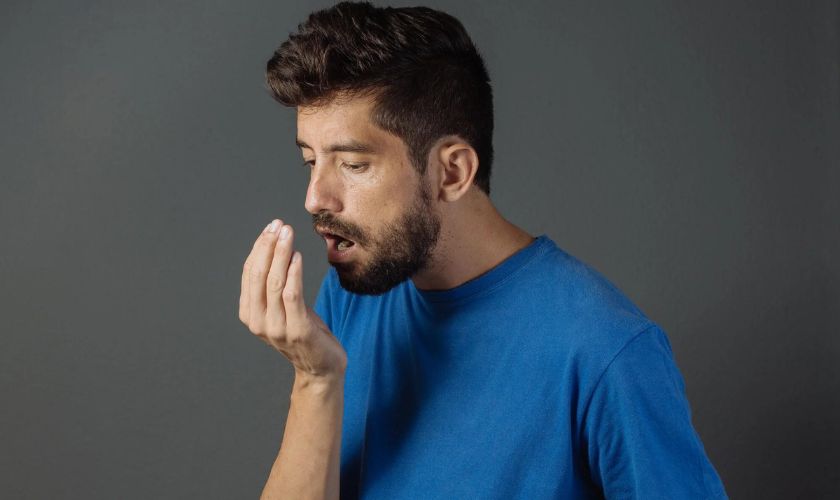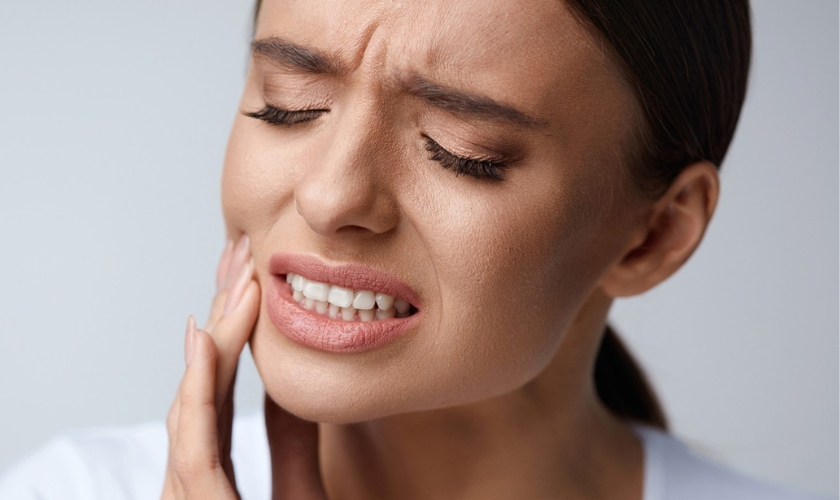New Patients Welcome!

Bad breath, also known as halitosis, can be an embarrassing and frustrating issue that affects millions of people worldwide. While occasional bad breath is normal, persistent or chronic bad breath can indicate underlying oral health problems that need to be addressed. Fortunately, there are several effective ways to combat bad breath and promote good oral hygiene. In this blog post, we’ll explore the causes of bad breath and discuss practical tips and remedies to help you achieve fresh breath and optimal oral health for the long term.
Understanding the Causes of Bad Breath
Before diving into ways to combat bad breath, it’s essential to understand what causes it in the first place. Bad breath can be attributed to a variety of factors, including:
- Poor Oral Hygiene: Inadequate brushing and flossing can lead to the buildup of food particles, plaque, and bacteria in the mouth, resulting in bad breath.
- Dental Issues: Dental problems such as gum disease, tooth decay, and oral infections can contribute to bad breath by providing a breeding ground for bacteria.
- Dry Mouth: Saliva plays a crucial role in rinsing away food particles and bacteria in the mouth. Dry mouth, or xerostomia, can result in reduced saliva production, leading to bad breath.
- Smoking and Tobacco Use: Tobacco products can cause bad breath and increase the risk of gum disease and oral cancer.
- Dietary Factors: Certain foods and beverages, such as garlic, onions, coffee, and alcohol, can leave a lingering odor in the mouth.
- Medical Conditions: Bad breath can also be a symptom of underlying medical conditions such as sinus infections, respiratory infections, diabetes, and acid reflux.
Effective Ways to Combat Bad Breath
Now that we understand the common causes of bad breath let’s explore some practical tips and remedies to help you get rid of bad breath and maintain good oral hygiene:
- Practice Good Oral Hygiene: The foundation of fresh breath starts with proper oral hygiene habits. Brush your teeth at least twice a day, preferably after meals, using fluoride toothpaste and a soft-bristled toothbrush. Don’t forget to clean your tongue, as bacteria can accumulate on its surface and contribute to bad breath. Floss daily to remove plaque and food particles from between your teeth and along the gumline.
- Stay Hydrated: Drink plenty of water throughout the day to keep your mouth moist and stimulate saliva production. Saliva helps rinse away food particles and bacteria, preventing dry mouth and bad breath. Limit consumption of caffeinated and alcoholic beverages, as they can contribute to dehydration and dry mouth.
- Use Mouthwash: Incorporate an antimicrobial mouthwash into your oral hygiene routine to help kill bacteria and freshen breath. Look for mouthwashes that contain ingredients such as chlorhexidine, cetylpyridinium chloride, or essential oils like tea tree oil or peppermint oil.
- Chew Sugar-Free Gum or Mints: Chewing sugar-free gum or sucking on sugar-free mints can help stimulate saliva flow and mask bad breath temporarily. Look for products that contain xylitol, a natural sweetener that can help reduce plaque and bacteria in the mouth.
- Clean Your Dentures or Orthodontic Appliances: If you wear dentures, retainers, or other orthodontic appliances, be sure to clean them regularly as instructed by your dentist. Bacteria and food particles can accumulate on these devices, leading to bad breath and oral infections.
- Quit Smoking: If you smoke or use tobacco products, quitting is one of the best things you can do for your oral health and overall well-being. Tobacco use not only causes bad breath but also increases the risk of gum disease, tooth decay, and oral cancer.
- Address Dental Issues: If you suspect that dental problems such as gum disease or tooth decay are contributing to your bad breath, schedule an appointment with your dentist for a comprehensive evaluation and treatment. Professional cleanings, periodontal therapy, and restorative procedures can help address underlying dental issues and improve your oral health.
- Monitor Your Diet: Be mindful of the foods and beverages you consume, as certain items can contribute to bad breath. Consider reducing your intake of garlic, onions, spicy foods, coffee, and alcohol, or rinse your mouth with water after consuming them to help minimize odor.
- Stay Up-to-Date on Dental Check-Ups: Regular dental check-ups and cleanings are essential for maintaining good oral health and preventing dental problems that can cause bad breath. Your dentist can identify and address issues early on, before they worsen and lead to persistent bad breath.
- Manage Underlying Medical Conditions: If you suspect that an underlying medical condition is contributing to your bad breath, consult with your healthcare provider for proper diagnosis and treatment. Managing conditions such as sinus infections, respiratory infections, diabetes, and acid reflux can help alleviate bad breath symptoms.
Bad breath can be a source of embarrassment and discomfort, but it’s a problem that can be effectively managed with proper oral hygiene habits and lifestyle adjustments. By practicing good oral hygiene, staying hydrated, avoiding tobacco use, and addressing dental issues promptly, you can achieve fresh breath and maintain optimal oral health for years to come. Remember, if bad breath persists despite your efforts, don’t hesitate to seek professional dental or medical advice to rule out underlying health issues and receive appropriate treatment.
Looking For A Dentist In Seattle, WA
We are here to help you and support you with all of your oral health needs. If you think you could have dental problems call our Seattle Dentist office today. We are always happy to answer any questions you have and can schedule you for a visit.





